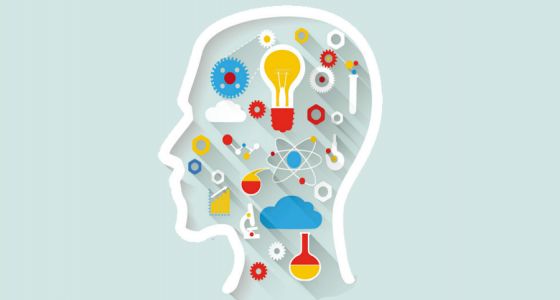(单词翻译:单击)
听力文本
This is Scientific American — 60-Second Science. I'm Karen Hopkin.
This will just take a minute.
Summer's here and it won't be long before school-aged kids across America start complaining that they're tired of riding their bikes, playing at the park, swimming in the pool...and all the other awesome activities their parents hoped would keep them entertained for the next 10 weeks.
Well, if it's any consolation, such rapid-onset boredom could indicate that the kids have amazing powers of recall. Because a new study shows that the better your short-term memory, the faster you feel sated and decide you've had enough. The findings appear in the Journal of Consumer Research.
"Though satiation can be physical, like when you feel full after eating too much, we were interested in the psychological side of satiation. Like when you're just tired of something."
Noelle Nelson, assistant professor of marketing and consumer behavior at the University of Kansas School of Business. She and her colleague Joseph Redden at the University of Minnesota tried to think outside the lunch box.

"Something that was interesting to me is that some people get tired of same things at very different rates. So if you think about pop songs on the radio, some people must still be enjoying them and requesting them even after hearing them a lot. But a lot of other people are really sick of those same songs."
The difference, the researchers posited, might have to do with memories of past consumption. For example, studies show that people push away from the dinner table sooner when they're asked to describe in detail what they ate earlier for lunch.
So the researchers tested the memory capacity of undergraduates. The students then viewed a repeating series of three classic paintings...like The Starry Night, American Gothic, and The Scream...or listened and re-listened to a series of three pop songs...or three pieces of classical music. Throughout the test, the participants were intermittently asked to rate their experience on a scale of zero to ten.
And the better a participant scored in the memory test, the faster they got bored.
"We found that people with larger capacities remembered more about the music or art, which led to them getting tired of the music or art more quickly. So remembering more details actually made the participants feel like they'd experienced the music or art more often."
The findings suggest that marketers could manipulate our desire for their products by figuring out ways to distract us and keep us from fully remembering our experiences. We could also trick ourselves into eating less junk food by immersing ourselves in the memory of a previous snack.
As for kids easily bored, just tell 'em to fuggedaboutit—it might help them have more fun.
For Scientific American — 60-Second Science Science. I'm Karen Hopkin.
参考译文
这里是科学美国人——60秒科学。我是凯伦·霍普金。
本斯节目只需要一分钟时间。
夏天到了,不久之后全美的学龄儿童就会开始抱怨他们厌倦了骑车、在公园里玩、在泳池游泳等,而他们的父母却希望这些精彩的活动能让他们在未来10周保持开心。
如果这能安慰你的话,这种迅速产生的厌倦感可能表明孩子拥有惊人的记忆力。因为一项新研究显示,你的短期记忆越好,你感觉厌足以致决定厌弃的速度就越快。这项研究结果发表在《消费者研究》期刊上。
“虽然餍足可以是生理上的,比如你因为吃太多而感到撑了,但是我们感兴趣的是心理方面的餍足。比如当你厌倦了某事的时候。”
诺艾尔·纳尔逊是堪萨斯大学商学院市场营销和消费者行为的助理教授。她和她的同事——明尼苏达大学的约瑟夫·雷登试图跳出惯性思维去思考。
“我感兴趣的是,人们对同一事物感到厌倦的速度有很大差异。想想广播里播放的流行歌曲,肯定有人在听了很多遍以后依然喜欢听,还会在广播里点播这些歌。但是其他人则会对同样的歌曲感到厌烦。”
研究人员假定,这种差异可能与过去消耗的记忆有关。例如研究显示,当人们在吃晚餐时被要求详细描述他们午餐吃了什么时,他们会更快地离开餐桌。
因此,研究人员对大学生的记忆力进行了测试。学生们观看重复出现的三个经典画作,比如《星空》、《美国哥特式》、和《呐喊》,或者听循环播放的三首流行歌曲或三首古典音乐。在整个测试过程中,参与者被间歇性地要求为自己的体验打分,分值从0到10。
在记忆测试中,参与者的得分越高,他们感到厌倦的速度就越快。
“我们发现,能力越强的人对音乐或画作的记忆也就越多,这也使他们更快地对音乐或画作感到厌倦。因此,记住的细节越多,实际上会让参与者感觉他们已经频繁体验过这些音乐或画作了。”
研究结果表明,市场营销人员可以通过分散我们的注意力,不让我们完全记住自己的经历,来操纵我们对产品的欲望。我们也可以让自己沉浸在以前吃零售的记忆中,以此来欺骗自己,让自己少吃垃圾食品。
至于很容易感到厌烦的孩子,只要告诉他们“忘了吧”,这可能会帮助他们获得更多乐趣。
谢谢大家收听科学美国人——60秒科学。我是凯伦·霍普金。
译文为可可英语翻译,未经授权请勿转载!
重点讲解
重点讲解:
1. be tired of 厌烦的;厌倦的;
例句:I've long been tired of sitting in an office all day.
整天坐办公室,我早就厌倦了。
2. be sick of 厌倦的;厌烦的;厌恶的;
例句:Or maybe she's just sick of all this.
或许她对这一切都已经厌烦了。
3. in detail 详细地;全面地;仔细地;
例句:It wasn't a spur-of-the-moment decision. We discussed it in detail beforehand.
这可不是头脑一热作出的决定。我们事先仔细地讨论过。
4. immerse oneself in sth./doing sth. 使沉浸(于);使专心(于);使深陷(于);
例句:I would like to immerse myself in the rich history and culture while enjoying various tours.
我喜欢在欣赏不同的风景时让自己沉浸在丰富的历史和文化中。


